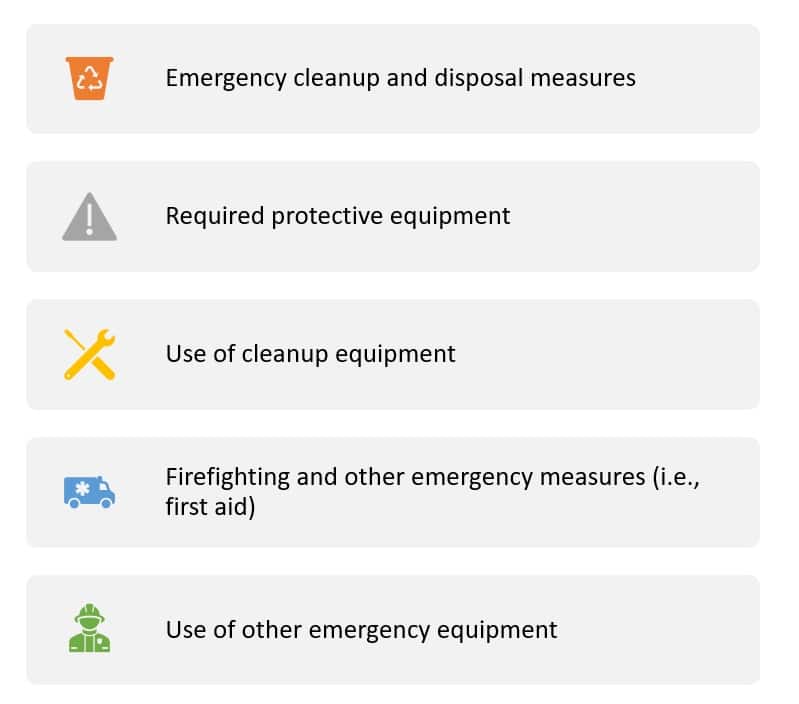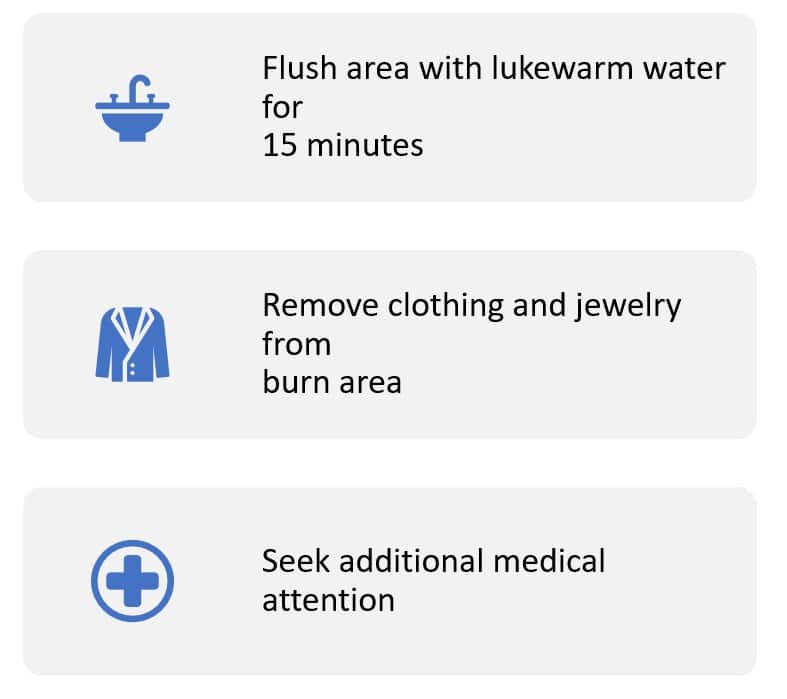Emergency Procedures Copy
Emergency Services
- In the case of emergency Dial 112/999
- Know the Eircode of the premises
- Know how to contact the First Aid Responders
- Ensure there are sufficient numbers of first aid responders available on site at all times.
- Have emergency call numbers and Eircode displayed in a prominent locations.
- Ensure employees know the numbers for:
- Poison Centre
- Local Doctor/GP
- Local Hospital
- Local Garda Station
- Local Fire Station
- Eircode

Download the Safety Matters Emergency Services Contact Details template here
CHEMICAL EMERGENCIES PROCEDURES
Poisons and Some hazardous chemicals are substances that cause harm when you ingest them, breathe them in or they come into contact with your skin or eyes. Even if you are extremely careful and make sure your chemicals are stored out of reach, exposure can still happen. If it does, your national poison centre is there to help you and a trained First Aid Responder should be at hand to treat the casualty.

INFORMATION EMERGENCY PERSONNEL SHOULD KNOW

SIGNS & SYMPTOMS OF CHEMICAL POISONING/OVER EXPOSURE
- Dizziness
- Nauseousness
- Headache
- Pale in colour
- Vomiting
- Skin Irritation
- Eye Discomfort
TREATMENT – CHEMICAL INHALATION
- Remove the person into fresh air
- Keep the casualty sitting upright and loosen any tight clothing around the neck, and chest.
- If the casualty goes unconscious put them into the recovery position
- Call for medical assistance
TREATMENT – CHEMICAL BURNS
- Reassure the casualty and call a First Aid Responder.
- Flush out the area with clean running water for 15/20 minutes
- Dress with water gel dressing
- Seek medical attention
TREATMENT – EYES
- Reassure the casualty and call for a First Aid Responder
- Either sit or lie the casualty down
- Tilt the eye to the injured side
- Open the eyelids
- Flush with water for 15/20 minutes being careful not to contaminate the uninjured eye.
- Cover the eye with a patch
- Seek immediate medical attention


TREATMENT – CHEMICAL INGESTION
- Requires URGENT medical attention
- Keep the person sitting upright
- If unconscious put in the recovery position
- Loosen any tight clothing around the chest
- Seek urgent medical attention
- Do not give anything to eat or drink
- Do not Induce vomiting only if told to do so by the Poison Control centre or a Medical professional
Poisons
A poison is a toxin or substance when taken into the body in sufficient quantity, can cause temporary or permanent damage.
How poisons enter the body
- Absorption
- Through the skin
- Cuts, abrasions
- Inhalation
- Gases
- Fumes
- Ingestion
- Eating or drinking
- Injection
- Needle / drugs
Signs & Symptoms
- Nausea
- Vomiting
- Pain
- Breathing difficulties
- Seizure
- Confusion
- Unconsciousness
Treatment
- Scene safety
- Call 999/112
- Identify source of poison
- For inhalation poisoning, move patient to fresh air
- For absorption poisoning, remove contaminated clothing and rinse the affected area
- Do not induce vomiting as this may cause further damage
- Check AVPU
- Recovery position if necessary and if unconscious
- Prepare to resuscitate if necessary
Poisons Centre
National Poisons Information Centre,
Beaumont Hospital,
Dublin
01 809 2166
24 Hour Service
www.poisons.ie